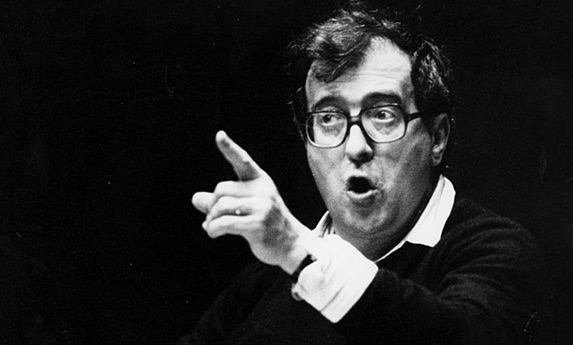As a conclusion to their time at Camargo, film maker Jorge Leon, actress Isabelle Dumont, and violinist and composer George van Dam spoke about their current film project on Wednesday evening. George, who performs with the Brussels-based contemporary music ensemble, Ictus, is a champion of new music, and he offered an exciting performance of Berio to start the evening.
The Sequenzas remain a singular and fascinating contribution to modern music, simultaneously extending compositional process and instrumental technique in a series of works that captivate the listener with an immediacy of expression. I’ve always been interested in how Berio recast his material in multiple compositions, for example the relationships between his Sequenza VI for solo viola (on which I wrote my Ph.D. essay) and the Chemins series of works. Therefore, it was interesting to hear George perform not the Sequenza VII for solo violin but the solo violin part of Corale, the ensemble work derived from the violin sequenza. George reveled in the shifting tension and timbres of the opening double stops and was especially effective in the moto perpetuo ending section. I was reminded again of the skill with which Berio maintains the listener’s attention through the subtlest reordering of pitches, as well as the ease with which he spins out multiple musical trajectories at once. It was a lovely way to start the evening.
Hearing this intimate performance brought back fond memories for me of the Berio Festival at Eastman in 2003, my final year as an undergraduate composer and violinist. Over a span of weeks, the halls, stairwells, and, indeed, elevators of the school were filled with his intricate textures and luxurious harmonies. I believe all the Sequenzas were performed, and all by students. I personally had the thrill of playing in the ensemble for Corale and in the orchestra for the complete Sinfonia. Both performances were led by Brad Lubman, one of the most dynamic contemporary music conductors I know. How many violinists, let alone undergraduates, can say they played Sinfonia? I treasure these experiences even more in hindsight. If you want to know something about a composer’s work, there is certainly no replacement for studying it and performing it in concert.
